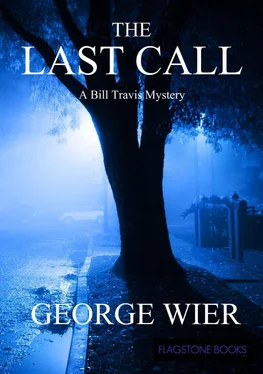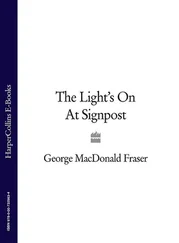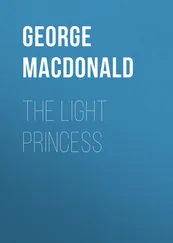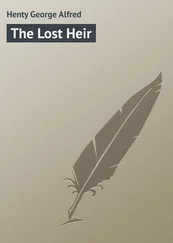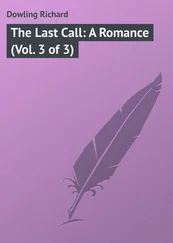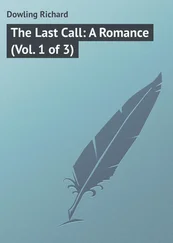George Wier - The Last Call
Здесь есть возможность читать онлайн «George Wier - The Last Call» весь текст электронной книги совершенно бесплатно (целиком полную версию без сокращений). В некоторых случаях можно слушать аудио, скачать через торрент в формате fb2 и присутствует краткое содержание. Жанр: Криминальный детектив, на английском языке. Описание произведения, (предисловие) а так же отзывы посетителей доступны на портале библиотеки ЛибКат.
- Название:The Last Call
- Автор:
- Жанр:
- Год:неизвестен
- ISBN:нет данных
- Рейтинг книги:4 / 5. Голосов: 1
-
Избранное:Добавить в избранное
- Отзывы:
-
Ваша оценка:
- 80
- 1
- 2
- 3
- 4
- 5
The Last Call: краткое содержание, описание и аннотация
Предлагаем к чтению аннотацию, описание, краткое содержание или предисловие (зависит от того, что написал сам автор книги «The Last Call»). Если вы не нашли необходимую информацию о книге — напишите в комментариях, мы постараемся отыскать её.
The Last Call — читать онлайн бесплатно полную книгу (весь текст) целиком
Ниже представлен текст книги, разбитый по страницам. Система сохранения места последней прочитанной страницы, позволяет с удобством читать онлайн бесплатно книгу «The Last Call», без необходимости каждый раз заново искать на чём Вы остановились. Поставьте закладку, и сможете в любой момент перейти на страницу, на которой закончили чтение.
Интервал:
Закладка:
“Yeah. I think we should pull over and re-check our armaments,” I said.
We were loaded for bear. I had a.38 and Hank had his.25 caliber Walther and Dingo. Also he had a backpack stuffed with little metal cylinders with walkie-talkies taped to them.
“How’re you holding up?” Hank asked.
“Bout as well as can be expected,” I told him, but in truth, I was more than a little nervous.
When it comes to mortality, whether it’s your own or somebody else’s, that’s just the way it is. You feel it in your stomach, in the little nerve-endings in your hands and feet, over the sensitive skin along the spine. If I had to name the feeling, I’d call it fear.
I wondered if Hank felt the same.
“Let’s do this,” he said.
I started up the car and pulled out onto the road and headed straight into the coming blackness.
A few miles down the road from Carpin’s ranch the windshield started picking up little spatters of rain. As we advanced the drops become larger, the roadway underneath became slick. By the time we reached a large billboard that read “QUARTER HORSE RANCH” on the roadside, it was coming down in sheets, almost horizontal, right at us. I turned the windshield wipers on full. In our headlights the rain appeared to have a nexus, a central emanation point about eight feet in front of the car and about four feet above the level of the hood.
Night had descended, and it was a night right out of some story by Sterling Hayden, or perhaps Dean Koontz. The kind of night where the weather takes on a personality all its own.
I slowed us to a crawl. The last mile took all of five minutes, though it seemed a lot longer.
The rain came down so fast and thick and hard all at once as we pulled off the road near the main gate that visibility was down to twenty yards, even with the wipers flogging the windshield full tilt.
I looked at Hank.
“Are we doing this right?” I asked him.
“I’ve never done this before, Bill,” he said. “We’ll know soon enough. If we live through this, remind me to tell you that you did fine.”
I put the car in park.
“Leave the keys under the seat,” Hank said. “We may have to scoot pretty quick.”
“How are we going in?” I asked. Really, I was asking myself.
“Gun in hand. We go in together. You too, Dingo,” Hank said. Dingo stuck her head up front and licked Hank’s cheek.
It was my turn to say it: “Let’s do this.”
CHAPTER TWENTY-FOUR
Hank and Dingo and I crouched in a downpour at the edge of the woods near the main gate to the Carpin Quarter Horse Ranch. Thunder crashed and lightning lit up the world for brief spaces.
I had never been so wet. The rain came down in sheets.
The earth beneath our feet churned in the torrent of the runoff and became so much mud.
Hank was bent low with an arm around Dingo’s neck, and even the dog tried to make herself as small as possible, pressing herself back against and underneath him in an attempt to stay out of the rain. The pack on Hank’s back was shedding water at an alarming rate. I only hoped the merchandise inside was still high and dry.
The heart of the storm would be passing over us soon. There was one particular sheet of brilliance, there and gone in a twinkling, so bright that my retinas hurt, and even as I thought of counting forward from the flash to the peal of thunder, it seemed that a giant decided at that moment to clap his hands together behind my head.
“Damn,” Hank shouted, “that was close.”
In the woods to our left I saw a flicker of light. The tree that had just been hit by lightning, not twenty yards away, guttered with flame for a moment, then the flames winked out.
“Yeah!” I yelled back.
A hundred yards ahead through the night and the storm I could make out the dark, solid silhouette of the main house. Still no light.
“Do you think anybody’s home?” Hank asked.
“Your guess is as good as mine. If there are any cars, they’ll be around back.”
Dingo barked, but it was half-hearted. A protest, probably. I was certain the dog thought we were all out of our minds, and I wasn’t so sure that she wouldn’t be right if she did. What the hell were we doing anyway? Then again, I’d been asking myself that question for most of my life.
“The stables must be down the lane,” Hank said. “Back beyond the house. Still wish I had that map Julie drew.”
“Yeah,” I said. “Hank, I think we should split up. Like in Rio Bravo . Somebody needs to cover the back door, you know what I mean?”
It didn’t take him long to agree, one quick scan of the lay of the land, which was darkness and quagmire, and he was nodding.
“Okay.”
“I’ll go left,” I told him and pointed. Toward the left there was a stand of brushy woods straining against an ancient barbed wire fence and a narrow path between the house and the woods, a black place in the night that appeared to swallow the lightning and the storm.
I caught Hank’s look in a flash of lightning. Even he thought I was crazy. That was a switch.
“You and Dingo go right,” I said, and pointed.
To the right of the house the bare land rose up into a series of low hills, then fell away toward the rear of the property. Back there, somewhere, was the swelling, clay-red waters of the Red River. Also, back there somewhere were the horse stables, and beyond that, a certain manure pile.
“You be… thorough,” Hank said.
“I’ll be…Yeah.”
With that Hank and Dingo were gone into the storm, vanishing completely in an instant.
With the rain filling my shoes-by God, I’d have to get new ones soon-I set off down the fence line, peering at the ground ahead and pausing between flashes of lightning in order to keep my bearings.
I entered the night.
When I was all of seven years old I went with my folks to visit a neighbor lady.
In the small town where I grew up the street lamps were thin-to-nonexistent the further you got away from downtown, and we lived within a block of the city limits. When the moon waned down to nothing, or hid itself completely, the dark spaces between and behind the homes held little more light than a limestone cave, particularly on cloudy nights.
That night was such a night.
After dinner and tall tales, each equally unremarkable, my mother and father said their goodbyes on the front porch while I fidgeted from foot to foot on the spaced concrete blocks that composed the front walk.
I looked around at the ocean of night around me, the only safe shores of which was the pool of rectangular light spilling around the silhouettes of my folks and Mrs. Beckham.
I heard a sound; an odd sound, like a whimper. It seemed to emanate from the side of the house down near the ground, and being age seven it was up to me to investigate.
Some of us are born curious and have the good fortune to have an inborn sense of fear and awe with which to temper it. I wasn’t so lucky. Curiosity I had, and that in spades, but until that moment in the hot high summer of 1970 in the East Texas night at Mrs. Beckham’s house at the corner of Collard Street and Maple, I had not yet learned of fear and pain from the unknown.
Perhaps ten feet-all of a world-into the darkness, I felt for the whimper in the inky blackness.
I moved forward. Two yards. Five.
I smelled earth, freshly turned-the same scent as from our vegetable garden when it was being tilled-and I smelled iron, and something else. A wet smell. A reek.
The whimper turned abruptly into a growl; a low, gravelly staccato rising in volume and intensity in the stillness of the dark. From a world away I could hear the adult voices around front, indistinguishable as words but with crystal clarity as far as tone-over there, in that other world where my parents and the old neighbor lady stood on the shores of the light, all was well. All was right with the world.
Читать дальшеИнтервал:
Закладка:
Похожие книги на «The Last Call»
Представляем Вашему вниманию похожие книги на «The Last Call» списком для выбора. Мы отобрали схожую по названию и смыслу литературу в надежде предоставить читателям больше вариантов отыскать новые, интересные, ещё непрочитанные произведения.
Обсуждение, отзывы о книге «The Last Call» и просто собственные мнения читателей. Оставьте ваши комментарии, напишите, что Вы думаете о произведении, его смысле или главных героях. Укажите что конкретно понравилось, а что нет, и почему Вы так считаете.
